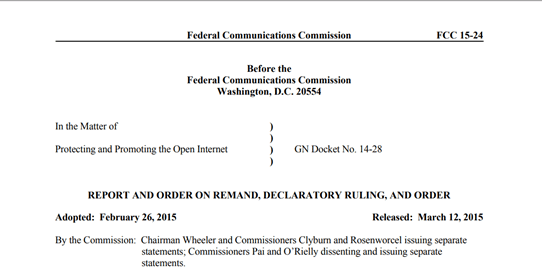What is Net neutrality? The ultimate guide (Updated 2024)
The FCC has voted to roll back the rules on net neutrality in what is a controversial move. Roughly, a third of all Americans are actually unsure about what net neutrality even is, so we’ve summarized what you should know and how it can affect internet users.

What is Net Neutrality?
Net neutrality is the principle that all online data should be treated the same way.
The concept is ISPs shouldn’t discriminate against internet users by charging differently or throttling bandwidth due to the websites they access, their locations, the type of content, etc.
With net neutrality rules, governments can regulate the ISPs, so they can’t slide some data into “fast lanes” while blocking access to sites like Netflix, or other streaming services.
What Countries Have Net Neutrality?
Different Countries see the concept of net neutrality in their own way. Some countries, like Singapore and Indonesia, have taken steps not in accordance with the idea, banning foreign international services to favor regional counterparts.
Other countries, like the Netherlands and the United States, passed regulations that prevent ISPs from discrimination against internet users.

What’s Happening with Net Neutrality Rules
The net neutrality rules established in 2015 were short-lived, lasting only a few years. While many people agree with the basic idea of net neutrality, plans for bringing about the seemingly uncontroversial principle attract conflict.

In 2017, the Republican-led FCC voted to repeal the rules in a 3-2 decision. The FCC Chairman criticized the regulations, claiming they were “a mistake” and “heavy-handed.” He argued that these rules stifled investment and hindered innovation.
On June 11, the net neutrality rules put in place during the last administration ceased to exist. The Federal Trade Commission now has the responsibility of protecting internet users.
The FTC can take action against companies that commit fraudulent or anti-competitive activities, violate contracts with consumers, or participate in the anti-competitive and fraudulent activity.
Arguments For Net Neutrality
1 Protecting digital rights and freedoms
Net neutrality encourages freedom of speech and prevents major ISPs possessing too much media power and stifling independent content. With the repeal of net neutrality, it is possible for ISPs to control data and limit or block access to content.
If we let cable companies offer two speeds of service, they won’t be Usain Bolt and Usain Bolt on a motorbike. They will be Usain Bolt, and Usain bolted to an anchor.
– John Oliver
Your ability to access a website depends on your desire to access the website and not the deals that the intermediaries have made with each other.
– Cindy Cohn
2 Promoting competition and innovation
With ISPs unable to control the flow of data or charge higher fees for priority services, the internet is more open to entrepreneurs and innovative ideas.
3 Preventing pseudo-services
In 2014, Netflix announced they paid Comcast and Verizon extra to avoid bandwidth throttling. The fear is that, rather than R&D investments, ISPs will leverage their quality of service and demand payments to refrain from bandwidth throttling.
4 Supporting small businesses
As internet users prefer responsive websites, just a single second delay can cause them to lose interest, and this is where bandwidth discrimination by ISPs can lead to issues. For example, if small businesses’ sites don’t load as fast as larger competitors’, they will suffer.
Arguments Against Net Neutrality
1 Cuts to investment
ISPs have argued against the net neutrality rules claiming they take away their ability to better monetize business, driving away investors. That in the long term, net neutrality will impede and damage networks.
2 Unnecessary regulations
Some opponents of net neutrality rules consider them “overkill,” claiming that, “the internet has functioned well for the past 15 years without it.” The argument here is that government regulations would only hinder innovation.
My concern is that, by imposing those heavy-handed economic regulations on Internet service providers big and small, we could end up disincentivizing companies from wanting to build out Internet access to a lot of parts of the country, in low-income, urban and rural areas, for example.
– Ajit Pai
3 Preventing price surge
Ajit Pai has stated that, according to ISPs, “regulatory intrusion into our businesses… would likely force us to raise prices, delay deployment expansion, or both” and “will badly strain our limited resources.”
How a VPN Can Help

Previous incidents have shown internet providers, like Verizon and Comcast, may not be entirely ethical, highlighting the need for regulations within the industry.
Unfortunately, the FCC has voted to repeal the rules concerning Net Neutrality. Many states, however, have devised their own legislation, while some tech companies have launched lawsuits against the FCC to preserve the rules.
In spite of all this, a VPN can help protect you against some issue that could arise from the repeal. With a VPN service, you can alter the location of your IP address if you ever face censorship or online discrimination due to that aspect.
ISPs are unable to track your online activity while connected to a VPN, with your data encrypted. The content you view can’t be restricted and you’re free to browse most sites without incurring any problems.



